We’re entering a future of tech workers living luxury lives in private cities isolated from the rest of the world, with corporations reaching the levels of power until now only held by cities and nation states. Whether we like that or not, economics states its inevitable. (TL;DR).
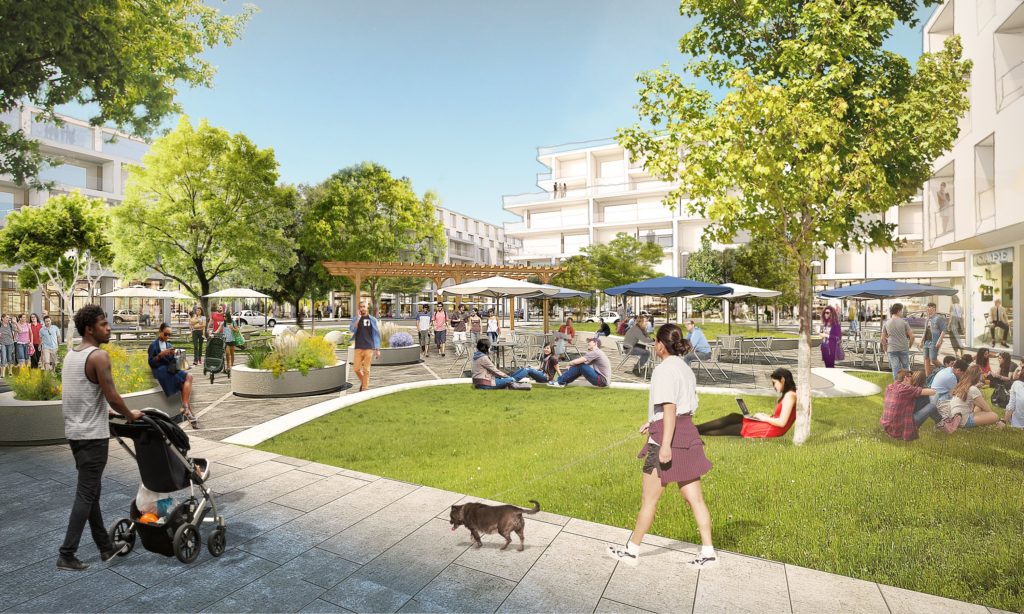
This month, Facebook announced they’re expanding their campus in Menlo Park. In corporate lingo they call it “investing in Menlo Park and our community”. But if you read through the lines, it’s a lot more than that. They’re planning building 1,500 houses, with restaurants, a retail shopping area, a giant grocery store, parks, roads and a police station.
Of course, Google followed suit with their own expansion in San Jose
You can call that a campus as much as you want, to me that sounds an awful lot like a city.
“Don’t call it a city though”, Google and Facebook would say. It’s like Uber not wanting to be called a taxi and being regulated. Being called a city means the same. Regulation. Don’t. Call. It. A. City. But it’s a city.
## TrendsThis is the start of a trend that’s in turn part of a bigger trend that started about 12 years ago with two things: tech worker campuses and coworking spaces. Famously, Google was the first to introduce playful offices optimized to keep workers happy:
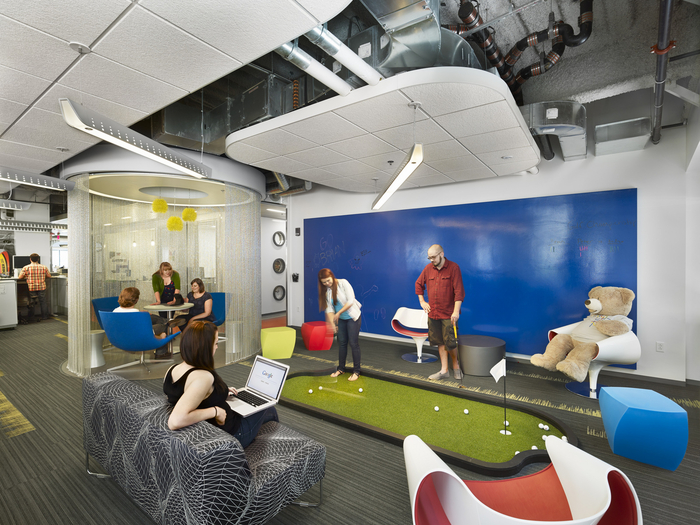
The “serviced” Google office (2005)
They introduced free services for their workers to keep them in the office longer, like free breakfast, lunch, and dinner, free laundry service and free childcare facilities. Suddenly, working for Google became a lot better than working for a regular company. Not just in pay, but in working standards.
Coworking (2005)
At the same time we saw regular companies change too. After the Financial Crisis of 2008 and the economic downturn that took years, massive layoff’s happened. More importantly a cultural shift from employment towards freelancing happened. A lot of people were fired and re-hired as contractors. It was promoted as “flexible work” but the dark side of it was that flexible work has no labor benefits whatsoever. Now outside the office, these freelancers needed places to work: cue coworking spaces:
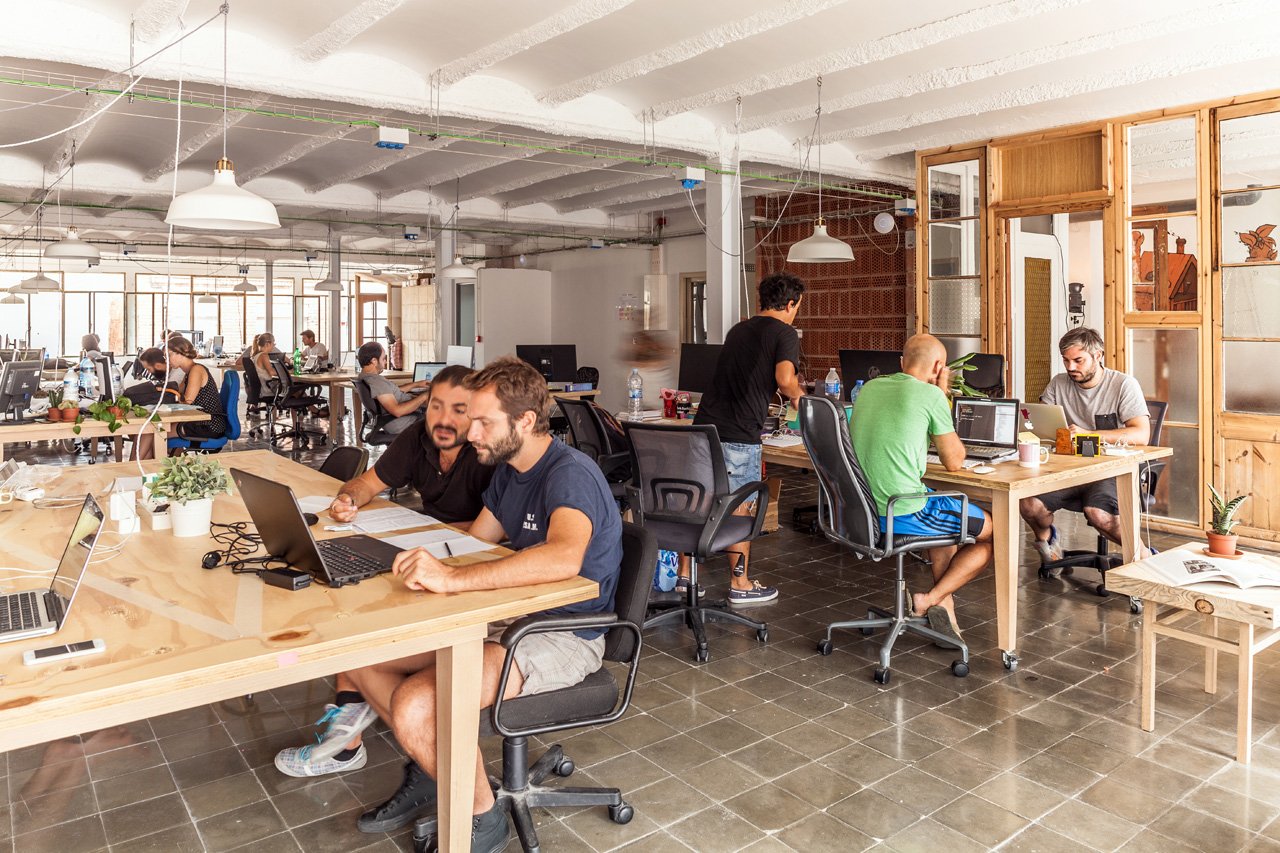
Nomads (2014)
Then around 2014, we had the explosion of remote work and digital nomads as a big trend. For nomads, coworking spaces offered a place to work but also community away from home:

Coliving (2016)
I said “community”. These remote workers needed places to sleep, so why not sleep near where you work: cue coliving spaces:
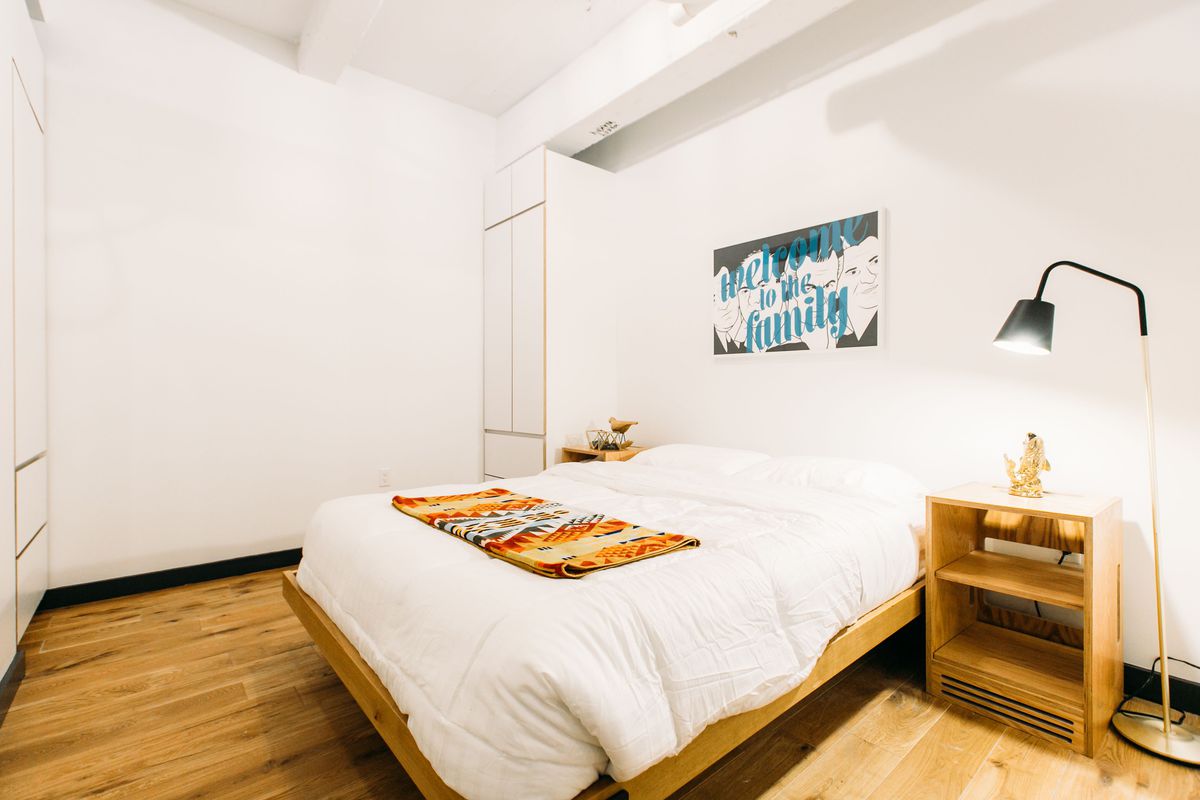
In 2016, WeWork, a big coworking provider, introduced WeLive: coliving spaces to live with your “coworkers”. Just like at Google and Facebook, work and private was now mixing in housing facilities.
Meanwhile, with rents in the San Francisco Bay Area rising to unaffordable levels, we saw Google and Facebook start subsidizing rent for their employees. But obviously this was unsustainable.
Private tech workers towns (2021)
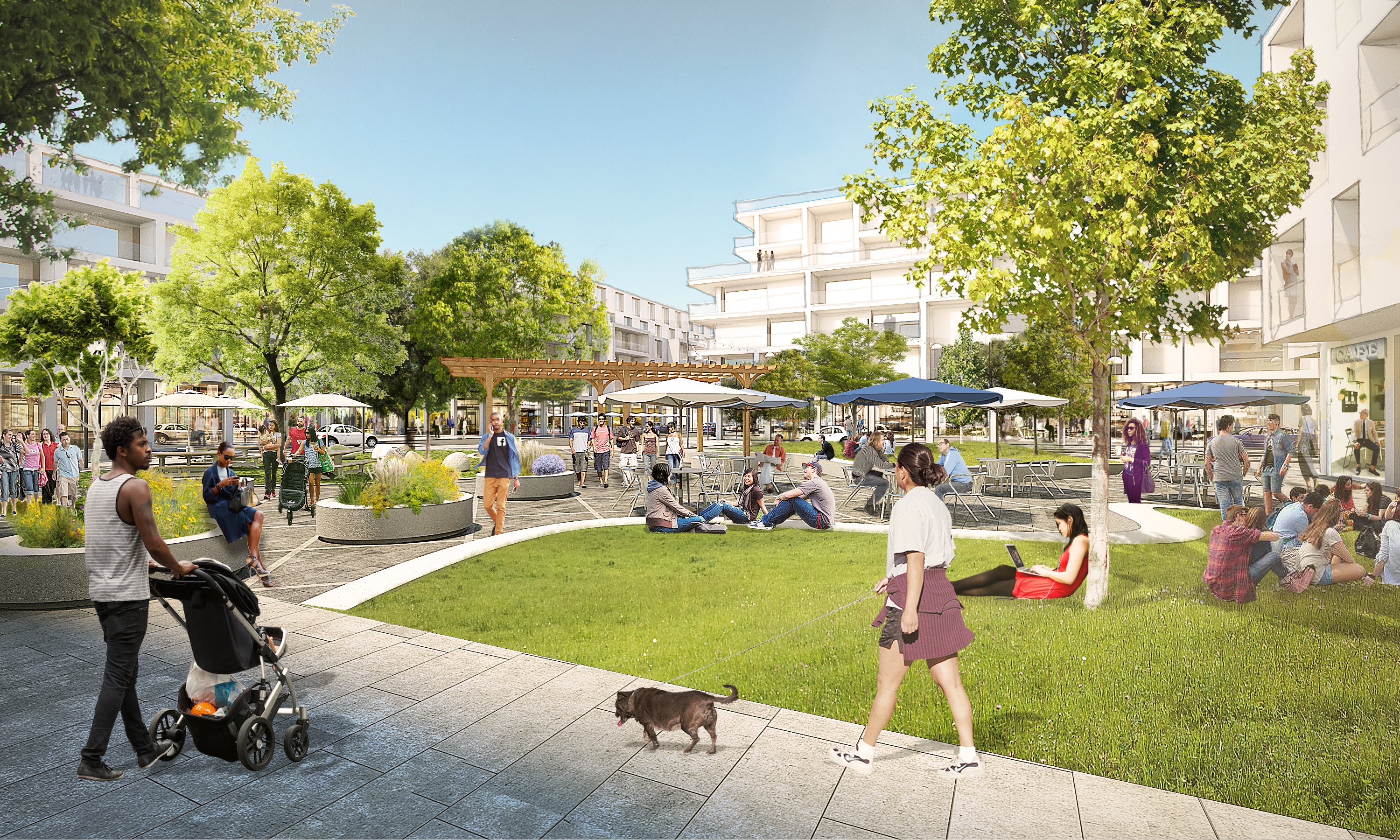
It was inevitable. To get better work output, you improve the lives of your workers, well, if you can afford to. And Facebook obviously could by creating its own city. The first part of development will be finished in Menlo Park around 2021.
With Facebook being the biggest employer and investor in Menlo Park in absolute dollar amounts, it’s impossible for Menlo Park to say “no” to these plans. Facebook would simply move to another place, and take its dollars with it. San Jose didn’t even try to stop it and already said overwhelmingly “yes” to Google’s plans:
“Google’s vision of an integrated development in San Jose aligns with the aspirations of the City, transit agencies, surrounding neighborhoods, and downtown businesses for extraordinary architecture, urban design, environmental sustainability, retail amenities, transit ridership and vibrant public spaces,” San Jose Mayor Sam Liccardo, the city’s vice mayor and three other council members wrote in a letter to the San Jose Mercury News daily.
Coliving cities (2020?)
Now what about the freelance tech workers outside Google and Facebook working in coworking spaces and living in coliving spaces? Real estate investors and the hospitality industry are already coworking features into their new projects:
From my inbox: Hotels are opening up in-house coworking spaces (in this case a big luxury chain). Coworking is now a feature, not a product! pic.twitter.com/UokGBLcjrn
— Pieter Levels @ 🇺🇸 (@levelsio) July 20, 2017
And many coworking space owners that I’ve talked to have plans to build coliving towns starting with tens of units, and if successful, quickly expand to hundreds, while attracting local business owners to open up shops, cafes and restaurants in the towns.
Dojo, a coworking space, is rumored to start building the first co-living village in Bali soon.
You can predict this with basic economics, and I’ve discussed it before. Coworking and coliving margins are so tight, the only way to make real money is with vertical integration. That means providing the entire chain of services and products for your user, from breakfast to coworking to coliving to shopping to leisure activities, take 10% from each part in the chain and you have a big business. We’ll see this happen.
History repeats
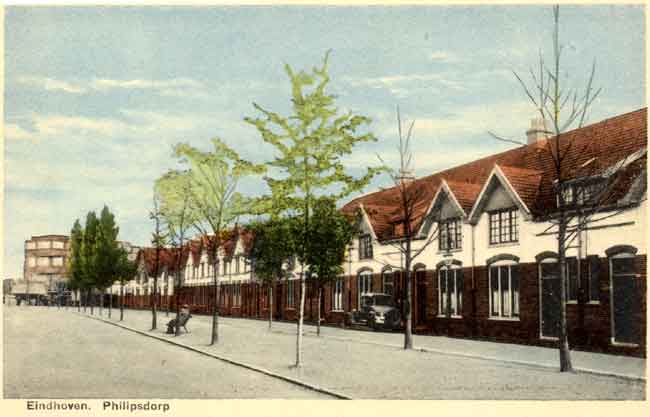
We’ve seen this before. Actually, a century ago. Philips (and many other industrial giants back then) created its own towns for employees near its factories because it couldn’t get enough (affordable) housing for them. Ironically, that remnants of that town are now used as a space for tech workers.
There’s countless more examples:
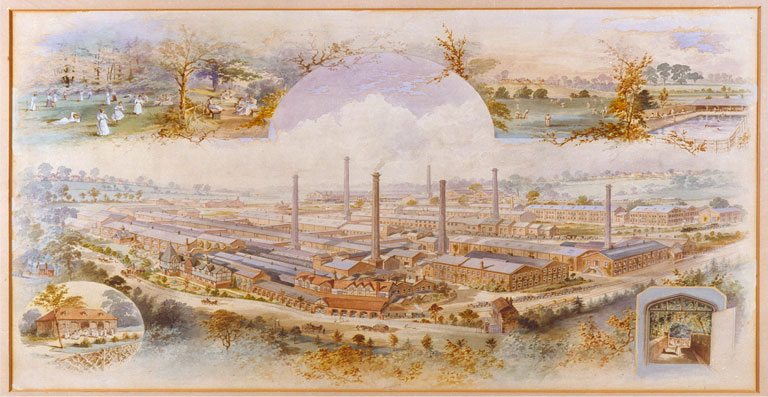
In 1893, the chocolate giant Cadbury built a 313-unit village for its factory workers called Bournville. It was built to:
“alleviate the evils of modern, more cramped living conditions”.
Now doesn’t that sound like living conditions in San Francisco and other big cities in 2017? That’s eerily familiar. History repeats if you wait 120 years.
Here’s where it gets scary
The new modern tech worker flies from major city hub to major city hub works for big tech companies (or as a frelancer). And it means, the culture of the 1st-tier cities (NYC, Shanghai) is converging. Meanwhile, the 2nd-tier cities (Dayton, Northampton, Munich) will slowly die out unless they’re near a top-tier city. The top talent work (and pay!) is in the big cities. This is the new reality of urbanism, whether you like it or not.
This means that major cities like New York, Los Angeles, London and Shanghai now essentially have more power in many parts of governing than governments. They’re so big they’ve essentially become small countries of their own. Amsterdam now offers its own expat visa for tech workers to live and work there legally and get a discount on tax. Note: I said Amsterdam, I didn’t say Netherlands. We’re talking a city here. My point exactly.
With corporations starting small towns for their 100,000’s employees (Amazon has 300,000 employees), these may turn into million people cities soon. How? Well, one tech worker probably has a partner at some point, maybe a few kids. That’s an average of 4 dependents per tech worker. 300,000 Amazon employees * 4 dependents = 1,200,000 people in a city. Obviously, this is hypothetical. But we might not be far off.
Let’s continue, hypothetically, if corporations will run million-people cities. And we know big cities are in many ways more powerful than the government. And we know big tech corporations itself are very powerful: Facebook has 2 billion users, that’s 600 million more people than China. Apple holds $256,000,000,000 in cash, or about twice as much cash as the US government. Then combined that might mean big tech corporations will, in the future, have the power of nation states. And will operate like that.
Google already has its own country TLD: .google.
I’m making some big shortcuts here and it’s hypothetical. But if it’s true, I’m not sure we want private entities to run our world.
There’s more to be scared off
Let’s get back to the tech worker cities. Facebook’s plan includes statements like:
We hope to contribute significantly to the housing supply by building 1,500 units of housing on the campus, 15% of which will be offered at below market rates. This added on-site housing should also mitigate traffic impacts from growth. These efforts complement our ongoing work to address the issue, including the Catalyst Housing Fund for affordable housing we established in partnership with community groups to fund affordable housing for our local area. The fund was initiated last year with an initial investment of $18.5 million that we hope will grow.
Obviously, that’s a good step. But it looks more like saving face, you’ll have 85% of rich tech workers and 15% of “non-tech people that can’t afford it”. The reality is that these cities will radically create a division between the rich tech workers and “the rest”.
The reality is that the majority of the world will be left out. Life quality will rise inside the tech worker cities (whether Google/Facebook-ran, or for freelancers), but it will be stagnant or decreasing outside them. That’s quite dystopian.
Why dystopian?
Because put simply: a government’s objective is to increase the life quality of its citizens (at least in theory). A company’s objective is to increase its shareholder’s returns (aka profits). As we know, profits don’t necessarily align with the life quality of (all) people.
As much as we can criticize, that won’t change things. These are inevitable macro-economic forces: fueled by low interest rates that pushed housing prices to unimaginable levels worldwide, failing governments that didn’t build enough housing (and change zoning laws) for all the people moving to the cities, and the automation of work by, well, tech workers, leaving most people with stagnant wages. Nobody will be able to stop any of this. It’s just economics. Nobody, except governments. But if tech companies are more powerful than governments, then, well, what? Exactly.
Basic income? Yes, basic income might help. But whether you get $2,000/month, the division will happen any way.
The future
The future is a tech elite living in their own private tech worker cities. Whether we like it or not.
P.S. I'm on Twitter too if you'd like to follow more of my stories. And I wrote a book called MAKE about building startups without funding. See a list of my stories or contact me. To get an alert when I write a new blog post, you can subscribe below: